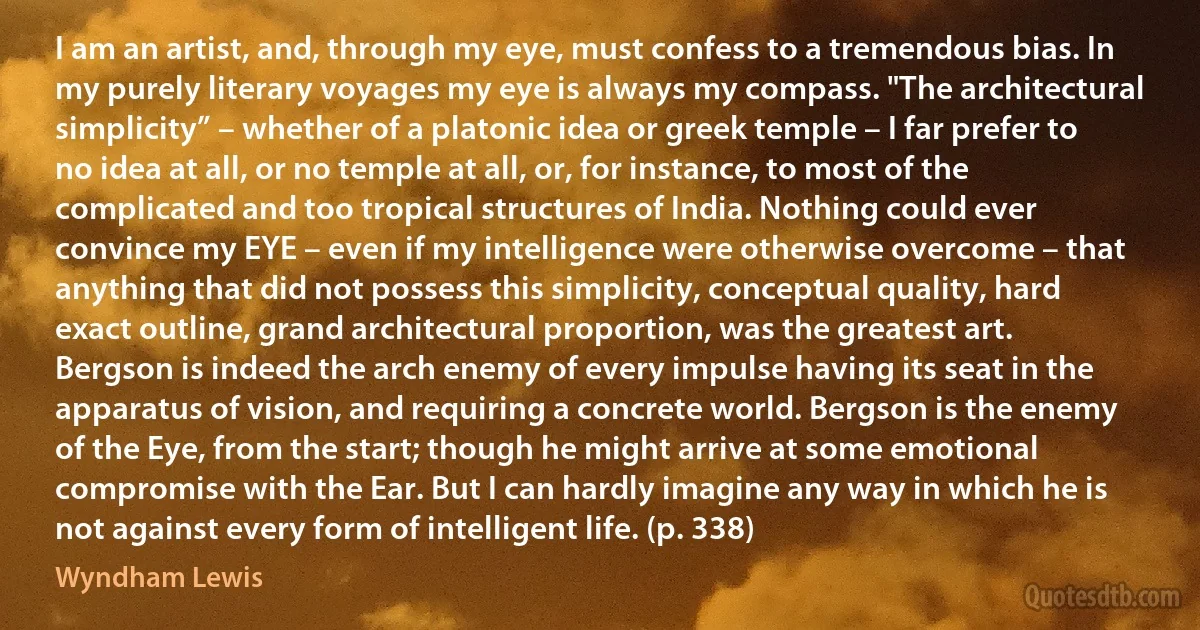Apparatus Quotes - page 5
Totalitarianism is never content to rule by external means, namely, through the state and a machinery of violence; thanks to its peculiar ideology and the role assigned to it in this apparatus of coercion, totalitarianism has discovered a means of dominating and terrorizing human beings from within.

Hannah Arendt
In which the technical apparatus of production and distribution (with an increasing sector of automation) functions, not as the sum-total of mere instruments which can be isolated from their social and political effects, but rather as a system which determines a priori the product of the apparatus as well as the operations of servicing and extending it. In this society, the productive apparatus tends to become totalitarian to the extent to which it determines not only the socially needed occupations, skills, and attitudes, but also individual needs and aspirations. It thus obliterates the Opposition between the private and public existence, between individual and social needs.

Herbert Marcuse
I consequently tried it in such cases, and where there has not been destruction, or irreparable organic injury to the auditory apparatus, I can confidently say, I know of no means equal to hypnotism, for benefiting such cases. Of course, it cannot suit all cases, but I am satisfied it will succeed in a numerous class of cases, and in some which bid defiance to all other known modes of treatment.

James Braid
Gramsci's remarks are rich and stimulating, but in the last analysis they follow the classical Marxist pattern of analysing religion. Ernst Bloch was the first Marxist author who radically changed the theoretical framework-without abandoning the Marxist and revolutionary perspective. In a similar way to Engels, he distinguished two socially opposed currents: on one side the theocratic religion of the official churches, opium of the people, a mystifying apparatus at the service of the powerful; on the other the underground, subversive and heretical religion of the Albigensians, the Hussites, Joachim di Fiori, Thomas Münzer, Franz von Baader, Wilhelm Weitling and Leo Tolstoy.

Michael Löwy
He and Marilyn were lovers, but this was never said in so many words. Explicitness about one's romantic arrangements had apparently been deemed gauche. In my middle-class teen-age world, the whole apparatus of going steady, exchanging ID bracelets, smooching at dances, fighting, breaking up, submitting to the arbitration of friends - that was the point, the public drama.

Edmund White
One is immediately struck with the obstinacy and rigid consistency with which Lenin and his comrades stuck to this slogan, a slogan which is in sharp contradiction to their otherwise outspoken centralism in politics as well as to the attitude they have assumed towards other democratic principles. Wile they showed a quite cool contempt for the Constituent Assembly, universal suffrage, freedom of press and assemblage, in short for the whole apparatus of basic democratic liberties of the people which, taken all together, constituted the "right of self-determination" inside Russia, they treated the right of self-determination of peoples as a jewel of democratic policy for the sake of which all practical considerations of real criticism had to be stilled.

Rosa Luxemburg
Whereas the particular conception of ideology designates only a part of the opponent's assertions as ideologies - and this only with reference to their content, the total conception calls into question the opponent's total Weltanschauung (including his conceptual apparatus), and attempts to understand these concepts as an outgrowth of the collective life of which he partakes.

Karl Mannheim
All things in nature become identical with the phenomena they present when submitted to the practices of our laboratories, whose problems no less than their apparatus express in turn the problems and interests of society as it is. This view may be compared with that of a criminologist maintaining that trustworthy knowledge of a human being can be obtained only by the well-tested and streamlined examining methods applied to a suspect in the hands of the metropolitan police.

Max Horkheimer
The moment one constructs a device to carry into practice a crude idea, he finds himself unavoidably engrossed with the details of the apparatus. As he goes on improving and reconstructing, his force of concentration diminishes and he loses sight of the great underlying principle.... I do not rush into actual work. When I get an idea, I start at once building it up in my imagination. I change the construction, make improvements and operate the device in my mind. It is absolutely immaterial to me whether I run my turbine in thought or test it in my shop. I even note if it is out of balance.

Nikola Tesla
The existence of antagonistic "conspiracies" was recognized by the defenders of religious and political views. Iconoclasts knew that images might distort the basic message of their creed (which consisted of words and resided in Holy Books). Church architecture and church music were adapted to the needs of the Holy Faith. Alternative styles were either fought or made part of religious PR. I conclude that our 'field of experience' is molded, overlaid, and 'conspired' against not just by language, but by numerous other patterns and institutions, many of them in mutual conflict. An inference from a style, a particular linguistic apparatus, or, more recently, from scientific beliefs, to a cosmology, corresponding ways of life and an all-embracing "spirit of the age therefore needs special support; it cannot be made as a matter of course.

Paul Karl Feyerabend
After demonstrating the practicability of this method of transmission, the thought naturally occurred to me to use the earth as a conductor, thus dispensing with all wires. Whatever electricity may be, it is a fact that it behaves like an incompressible fluid, and the earth may be looked upon as an immense reservoir of electricity, which, I thought, could be disturbed effectively by a properly designed electrical machine. Accordingly, my next efforts were directed toward perfecting a special apparatus which would be highly effective in creating a disturbance of electricity in the earth.

Nikola Tesla
However extraordinary the results shown may appear, they are but trifling compared with those which are attainable by apparatus designed on these same principles. I have produced electrical discharges the actual path of which, from end to end, was probably more than one hundred feet long; but it would not be difficult to reach lengths one hundred times as great. I have produced electrical movements occurring at the rate of approximately one hundred thousand horse-power, but rates of one, five, or ten million horse-power are easily practicable. In these experiments effects were developed incomparably greater than any ever produced by human agencies, and yet these results are but an embryo of what is to be.

Nikola Tesla



